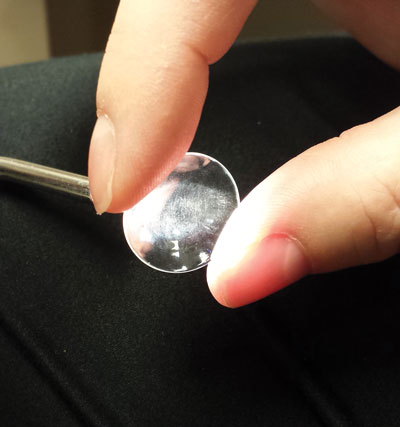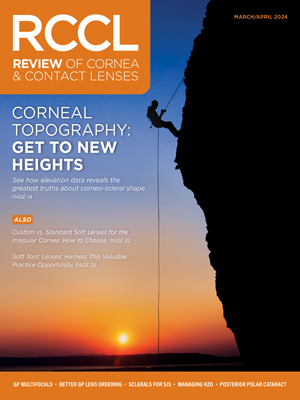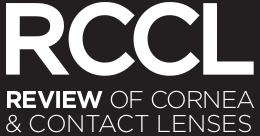 |
The benefits of using scleral lenses to treat ocular surface disease are well known and have been supported by studies in recent years, as well as decades of anecdotal reports of success. In short—sclerals vault the cornea and rest on the sclera, protecting the compromised ocular surface while providing space for a “liquid bandage.” There are problems specific to this combination of the distressed eye and specialty lens, however—namely, mucin and debris buildup under the lens.
Mucin forms deposits on the lens over time, decreasing comfort and affecting visual clarity. This is especially problematic in patients with severe ocular surface disease, as the greater the irritation, the more mucus is produced. To limit this complication, I recommend weekly or bi-weekly prophylactic cleaning with Progent (Menicon America) to remove deposits and improve lens wear for all my scleral patients.
The Case for Progent is Cogent
Progent effectively disinfects and removes protein buildup from the surface of GP lenses. Primarily used as a cleaner to eliminate excess protein, Progent also has strong disinfection capabilities and has been shown to be effective against bacteria, molds, yeasts and viruses, as well as Acanthamoeba trophozoites and cysts, even after just a five-minute soak.1 It also has been shown to deactivate the following virus strains: poliovirus type 1 equivalence for HIV, orthopoxvirus, bovine rotavirus, herpes simplex virus type 1 and adenovirus type 5.2
Previously only available in-office, Progent was FDA-approved for home use in 2010. Due to the toxic nature of the compounds, this product cannot be sold without a doctor’s approval, so doctors may either dispense it from their practices or patients can get it online using their doctor’s access code.
 |
|
| Mucin deposits on a scleral lens in a patient with lagophthalmos. |
Solution Specifics
The Menicon Progent kit comes with two 5ml vials of fluid. Ampule A contains sodium hypochlorite, sodium carbonate, sodium hydroxide and purified water, while ampule B contains potassium bromide, sodium carbonate and purified water. An accompanying large scleral lens-holding container allows both lenses to be cleaned at the same time; if using the smaller container, scleral lenses can be accommodated by turning the holders 90 degrees. Once the fluids mix, the lenses should soak for no more than 30 minutes to prevent lens discoloration. After removal, the lenses should be rubbed with a GP lens cleaner and soaking solution.
The first solution in ampule A (comprised principally of sodium hypochlorite) is a clear, pale yellow liquid commonly known as bleach. Because it can form explosive compounds with common substances like ammonia, amines, charcoal and organic sulfides, it should be used only as directed to prevent spillage.
Be sure to handle the solution carefully, as dermal contact with hypochlorite can lead to skin irritation, pain, inflammation and blisters. Ocular exposure to gases will cause burning and lacrimation. Furthermore, because hypochlorite solutions are basic (i.e., pH =11 to 13.5), ocular exposure to liquid hypochlorite can result in a chemical burn. Burn severity is related to a number of factors, including pH, concentration and length of exposure time; thus, in the case of contact, it is imperative the eyes be irrigated immediately.
The solution in ampule B, containing potassium bromide, is colorless and odorless. Though it has a neutral pH, contact with the eye can cause irritation and redness. When the potassium bromide is combined with the sodium hypochlorite—a strong oxidant—the resulting oxidation-reduction reaction triggers protein degradation.
In closing, regular prophylactic use of Progent has solved comfort and vision issues for many of my scleral patients. I would recommend you consider it as an option to keep your patients healthy and happy.
Dr. Sindt has no financial interest any products mentioned in this article.
1. Menicon. Contact Lenses & Care: Progent. Available at: www.menicon.com/pro/gas-permeable/gp-lens-care/progent. Accessed Dec. 3, 2014.
2. Progent [data on file]. Waltham, MA: Menicon; 2003.


